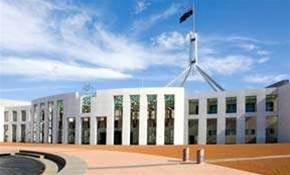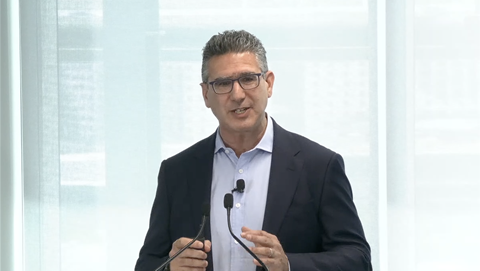Tommorow's Budget will be a tough one for many IT companies and practitioners reliant on public sector business, insiders and analysts say.

Ovum public sector research director Kevin Noonan has predicted another "thrifty" budget - especially for the IT industry.
"The first budget in the political cycle is the thrifty budget. The next is the 'engine-room' budget where the Government has to be seen to be getting on and delivering on it promises at full-speed ahead," Noonan told iTnews.
Government tax receipts are $6.55 billion behind mid-year economic forecasts, with some reports suggesting a $50 billion deficit.
The ALP Government has reiterated its pre-election committment to a surplus in 2012-13, making a thrifty budget a fair bet for 2011/12.
Predictions: Winners and losers
Cost pressures on large agencies from 'efficiency dividend' cost reductions
Cost pressures on Defence to reduce back-office costs
Increased funding for Health, Education and other channels of Government service delivery that take advantage of the National Broadband Network
Increased funding for the Department of Human Services to pursue its Service Delivery Reform and IT Consolidation programs.
The biggest victims of budget cuts will be large agencies tasked with cost reductions under the 'efficiency dividends' program.
As revealed on iTnews, larger agencies have been asked to cut budgets by 1.5 percent for the next two fiscal years in an attempt to save $465 million.
These cost reductions target portfolios rather than individual agencies, so there is scope to "share the pain", Noonan said.
But insiders have told iTnews that larger agencies within each portfolio would likely bear the brunt of cuts. These agencies would likely be the ATO within Treasury, Centrelink at Human Services, Customs at the Attorney General's Department and so forth.
IT procurement could slow as Departments cast a closer eye on how money is spent. Insiders expect heightened interest in centrally controlled and whole-of-Government procurement schemes from the Department of Finance's AGIMO (Australian Government Information Management Office).
Finance plans to produce benchmarking reports across all Governments as early as February 2012 to help weed out unwieldy spending. Noonan said this exercise was overdue.
"In the past, it was only the big ICT suppliers that had this insight across Government and among different sectors. Without this benchmarking process there was no way of seeing the difference in prices that people were paying for a slice of technology," he said.
One of the other losers is likely to be the biggest ICT spender in the Australian Government: the Department of Defence.
In the past three years, Defence has consolidated its pool of IT contractors under the 'Strategic Reform Program'.
Announced in 2009, the program aims to make back-office functions "more business-like", "efficient" and "prudent in its use of resources".
This would be achieved through "shared service delivery models" and a review to "determine the appropriate mix and size of our workforce that balances capability risk and workforce cost".
On Friday, Defence Minister Stephen Smith foreshadowed the axing of 1000 civilian jobs to save $300 million.
Sources told iTnews that any reduction in corporate services staff is likely to have implications on IT projects.
Read on as iTnews' team predicts which agencies and projects will win funding...
It won't all be bad news for the ICT sector.
The mainland rollout of National Broadband Network (NBN) services in first release sites would likely be matched by funding promises in areas that support the Government's "Digital Productivity" goals.
Specifically, funding will be directed to areas of Government service delivery that rely on, or support, its case for building a taxpayer-funded NBN.
Ian Birks, outgoing chief executive of vendor-funded industry group AIIA told iTnews he has lobbied the Government to make "no cuts to ICT spending", but admits he is "only partially hopeful that will be the case".
According to Birks, low ICT spending will hurt already declining levels of public sector productivity.
Any investment in programs to take advantage of the NBN would be welcomed, he said.
"What the Federal Government is not doing is investing in transformative new uses of ICT to improve productivity - at least not at the levels we'd like to see," Birks said.
"Tightening the screws is expected. But innovative use of ICT is the key to productivity in Government service delivery. That's being ignored. There always seems to be some reason given why such calls are ignored. It's always a 'tough year'."
The other likely winner of ICT funding is the Department of Human Services as it continues efforts to consolidate the channels through which citizens consume services from Centrelink, Medicare, the Child Support Agency and others.
Announced in 2009, the Service Delivery Reform program aims to encourage more Australians to interact with the Government using online channels rather than physical branches.
The Department planned to consolidate the IT infrastructure, call centres and other supporting infrastructure of all Human Services agencies during 2010.
In the 2010/11 budget, Centrelink was given $14.7 million for a virtualisation project and $8 million for a shared services project. In November 2010, the department absorbed the enterprise IT functions of the Department of Veteran's Affairs.
Sources told iTnews significant work lies ahead in completing the Service Delivery Reform program - likely to be one of few areas of ICT spending announced tomorrow.
Birks' wishlist
Birks said the AIIA had lobbied for several initiatives to prop up the IT industry.
The first would be measures to take advantage of the investment in the National Broadband Network.
"Even though it is a tight budget, an elaboration of how Government services will be funded to take advantage of this new broadband capacity would be welcome," he said.
The AIIA has also pushed for tax reforms around employee share options to encourage a start-up culture in Australia.
Employee share option plans - popular among new media companies - are currently taxed in Australia regardless of whether an employee exercises their value.
"This is the opposite of what happens in other countries such as US and UK where you pay tax on when you exercise the option and realise the benefit," Birks said.
Birks also hoped the Government could offer tax incentives for those organisations adopting technologies that deliver smaller carbon footprints.
Finally, he hoped for a more aggressive government investment in cloud computing.
"We believe the Government's approach to cloud computing to date has been too conservative compared with other countries," he said.


_(23).jpg&h=140&w=231&c=1&s=0)


.png&h=140&w=231&c=1&s=0)





 iTnews Benchmark Awards 2026
iTnews Benchmark Awards 2026
 iTnews Executive Retreat - Security Leaders Edition
iTnews Executive Retreat - Security Leaders Edition
 iTnews Cloud Covered Breakfast Summit
iTnews Cloud Covered Breakfast Summit
 The 2026 iAwards
The 2026 iAwards












_(1).jpg&h=140&w=231&c=1&s=0)



